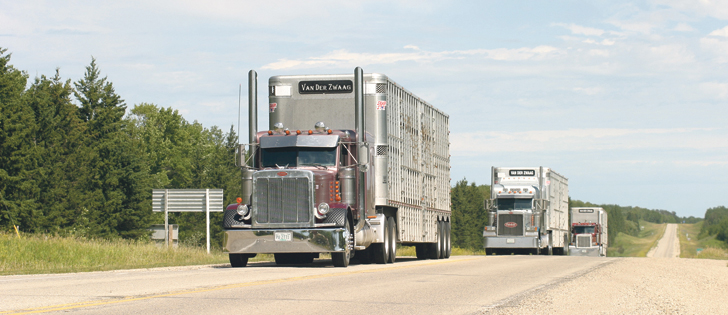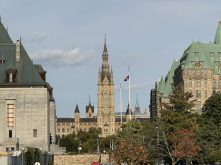DES MOINES, Iowa — Negotiations to update the North American Free Trade Agreement could begin as early as August, and many people in the ag industry are hoping a new deal gets done quickly.
However, the past-president of the U.S. National Pork Producers Council said pushing ahead with NAFTA re-negotiations is unwise because other policy issues should be dealt with first.
John Weber said U.S. immigration is at the top of that list, and if it isn’t resolved first, it might be difficult to negotiate with Mexico on trade.
Read Also

Farming Smarter receives financial boost from Alberta government for potato research
Farming Smarter near Lethbridge got a boost to its research equipment, thanks to the Alberta government’s increase in funding for research associations.
Weber, who served as NPCC president in 2016-17, met with representatives of Mexico’s pork industry last September. The tone of the meeting was negative.
“All they wanted to talk about was how stupid the wall concept was and you don’t degrade our people as being thieves and crooks,” Weber said in an interview at the World Pork Expo in Des Moines June 8.
“We offended that country…. How can you sit down at a table with those folks and (renegotiate) NAFTA when these other issues haven’t been addressed?”
On May 17, U.S. President Donald Trump’s administration notified Congress of its plans to renegotiate NAFTA. The letter triggered a 90-day consultation period with members of Congress, meaning negotiations could begin mid-August at the earliest.
Many U.S. commodity groups, including corn growers, cattle producers and pork producers, have been issuing news releases, seemingly every day this spring, to remind Trump about the importance of NAFTA and ag exports to the U.S. economy.
NPPC data shows that the U.S. exported $38 billion in agriculture products to Mexico and Canada in 2016.
In early June, U.S. Agriculture Secretary Sonny Perdue said Trump isn’t a trade protectionist and that the president is aware of the benefits of NAFTA.
“From an agricultural perspective, he also understands it’s been good for all three countries,” Perdue said.
The export numbers are large, but free trade deals are also about the free movement of people. Negotiations become much more difficult if Trump is determined to build a wall at the Mexican border and kick millions of immigrants out of the United States.
“I don’t think a lot of ag people understand that,” said Weber, who added he was speaking for himself rather than for the council.
“They think we just ought to go sit down with Mexico and write up a trade deal and start sending (them) corn and beans.”
The immigration matter is also directly important to the livestock industry. Immigrants, many from Mexico, are employed in hog barns, help build new barns and have jobs at slaughter plants.
Dustin Baker, NPPC deputy director of economics and production issues, said the U.S. pork industry “relies heavily” on immigrant labour. However, he didn’t have data on the percentage of immigrant employees working at U.S. hog barns.
The livestock industry would struggle without those employees, Weber said.
“Most of these people are good people. I’ve had them working on my farms,” he said.
“We need a policy that welcomes … (immigrants) that come to work.”
Taxation is another policy issue relevant to NAFTA.
House of Representatives Speaker Paul Ryan continues to push for a border adjustment tax of 20 percent on imports into the U.S.
Numerous business groups oppose the tax, but the concept isn’t dead in Washington.
Alive or dead, it’s hard to have trade talks if imports from Mexico and Canada could be subject to additional taxes, Weber said.
“You better get that figured out before you re-negotiate NAFTA,” he said.
“If I was negotiating NAFTA, I would want to know what the new tax policy is going to be.”
Despite his concerns, Weber and the NPCC support the NAFTA renegotiations, provided nothing is done to hurt the U.S. pork industry.
He just prefers the U.S. take a go-slow approach.
“This administration has huge issues to deal with … health care, tax reform, immigration,” he said.
“I feel some of that stuff needs to be dealt with before they can get serious about free trade agreements.”


















